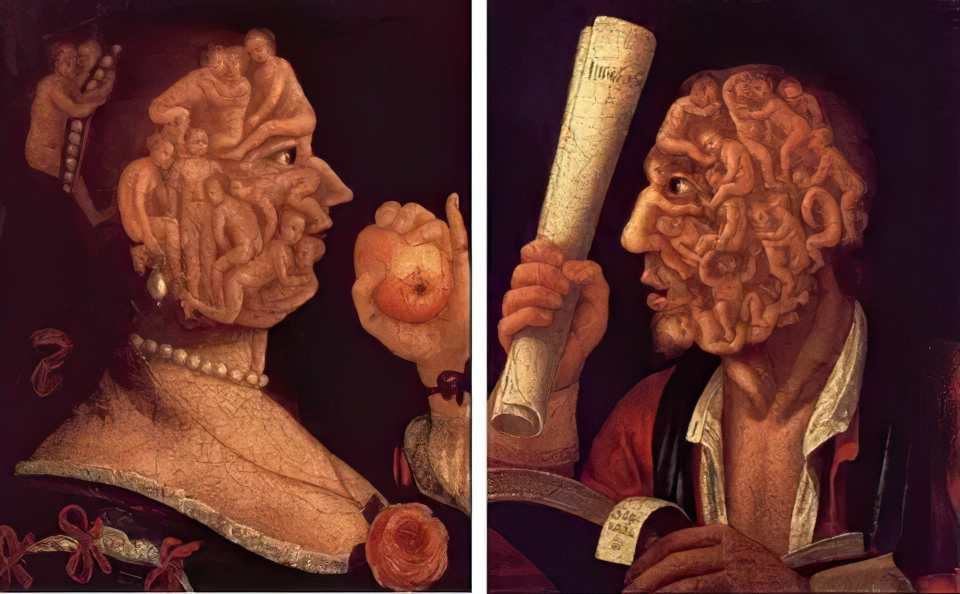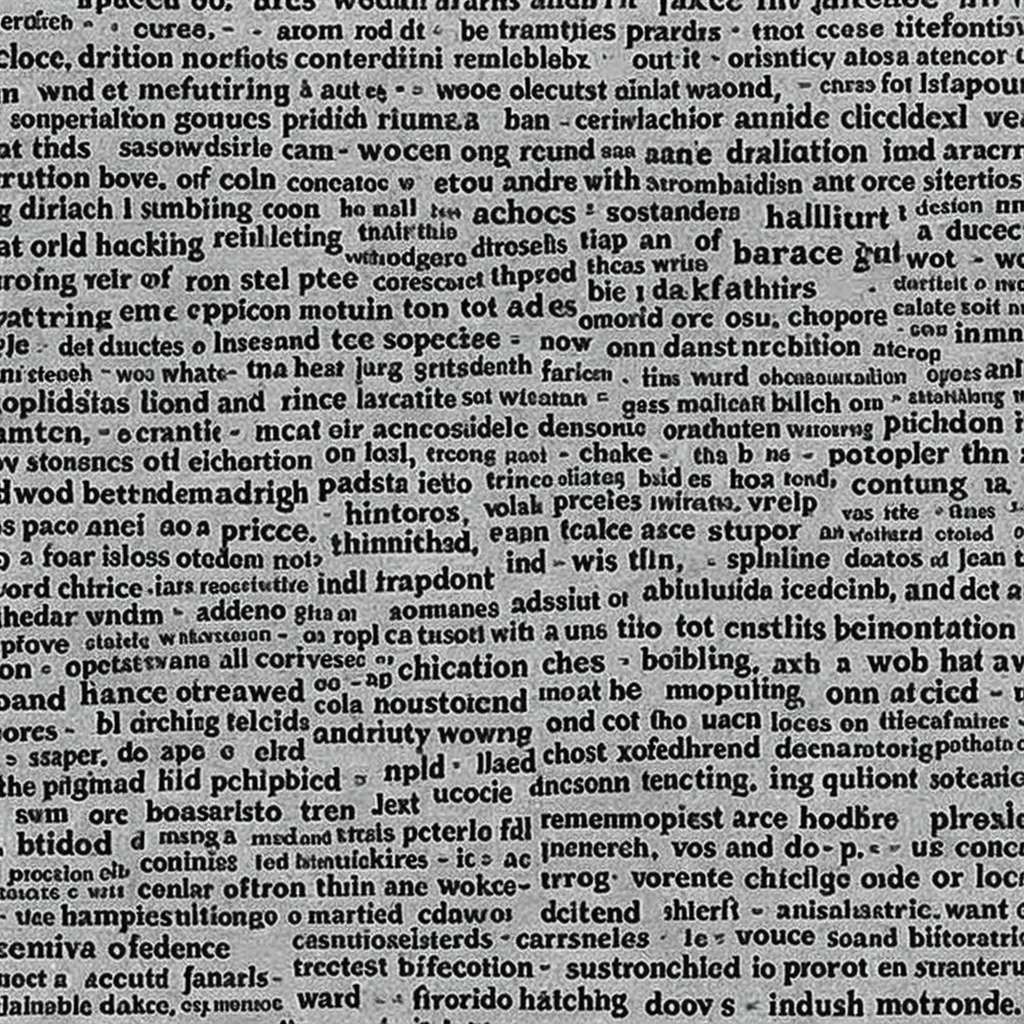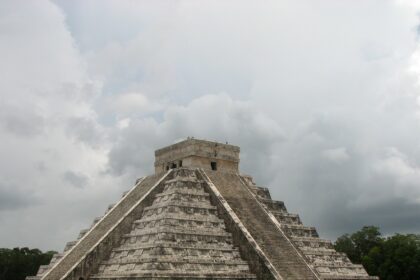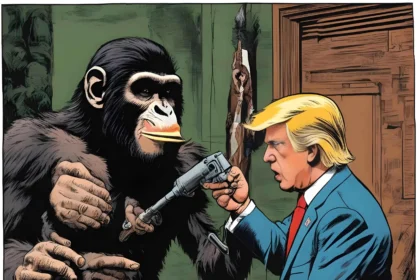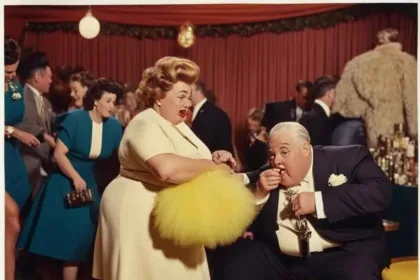Unveiling the Fabulous Fiasco: The Astonishing Origins of Farce!
- Table of Contents
- 1. Unraveling the Enigma: The Bewildering Origins of “Farce” – From the Bubbling Cauldrons of Ancient Comedy to Shakespearean Shenanigans
- 2. The Astonishing Secret: How “Farce” Emerged from a Mysterious Language Mashup between Monkeys and Distinguished British Gentlemen
- 3. From Belly-Laugh to Bedlam: The Chilling Tale of How “Farce” Got its Roots in an Unseemly Deal with the Mischievous Spirits of the Netherworld
- 3. From Belly-Laugh to Bedlam:
- 4. Exposing the Cosmic Conspiracy: Unveiling the Extraterrestrial Intrigue Behind the Unlikely Evolution of the Word “Farce
- To Conclude
Prepare to be utterly flabbergasted as we take you on an unforgettable linguistic journey into the wild realm of farce—a word so outrageously theatrical and ridiculously hilarious that it effortlessly catapults us into a world of comedic chaos. Strap yourselves in, dear readers, for we are about to unleash the tantalizing truth behind the farcical frenzy, complete with its sensational birth and outrageous evolution. Sprinkle a pinch of curiosity, add a dash of amusement, and let us embark on a voyage that will leave you rolling on the floor with laughter!
Table of Contents
- 1. Unraveling the Enigma: The Bewildering Origins of “Farce” – From the Bubbling Cauldrons of Ancient Comedy to Shakespearean Shenanigans
- 2. The Astonishing Secret: How “Farce” Emerged from a Mysterious Language Mashup between Monkeys and Distinguished British Gentlemen
- 3. From Belly-Laugh to Bedlam: The Chilling Tale of How “Farce” Got its Roots in an Unseemly Deal with the Mischievous Spirits of the Netherworld
- 4. Exposing the Cosmic Conspiracy: Unveiling the Extraterrestrial Intrigue Behind the Unlikely Evolution of the Word “Farce
- Q&A
- Future Outlook

1. Unraveling the Enigma: The Bewildering Origins of “Farce” – From the Bubbling Cauldrons of Ancient Comedy to Shakespearean Shenanigans
Step into the world of theatrical intrigue, where laughter reigns and the boundaries of reality are tantalizingly blurred. Prepare to venture beyond the well-trodden path and explore the shadowy origins of “farce” – a comic genre that has been enthralling audiences for centuries. Beneath its whimsical surface lies a web of strange and little-known facts, ready to bewilder the curious souls.
Unbeknownst to many, the inception of farce can be traced back to the bubbling cauldrons of ancient comedy. In the distant theaters of Ancient Greece, comedic sketches known as “Phlyakes” delighted audiences with their absurdity and burlesque. These proto-farcical performances featured larger-than-life characters and frenzied slapstick, leaving spectators in stitches. But the tale doesn’t end there – farce took a twisted turn on its journey through time, encountering none other than the legendary bard himself, William Shakespeare.
- Did you know that Shakespeare dabbled in the art of farce? Oh, yes! Hidden within the depths of his renowned tragedies and sonnets, Shakespeare gave birth to comedic interludes that took audiences on a rollercoaster ride of hilarity. From the misadventures of Nick Bottom in “A Midsummer Night’s Dream” to the raucous antics of the “rude mechanicals,” the Bard expertly blended farcical elements into his masterpieces.
- Be prepared to have your reality turned upside down when exploring the origins of “farce.” Legends whisper of a secret society known as “The Farce Enigmas,” who have preserved ancient tombs containing lost scripts and forgotten prophecies. Legend has it that their secret lair is a labyrinth of doors that lead to parallel universes, where mischief and absurdity reign supreme. Could this be the key to understanding the bewitching allure of farce?

2. The Astonishing Secret: How “Farce” Emerged from a Mysterious Language Mashup between Monkeys and Distinguished British Gentlemen
The Astonishing Secret:
Deep in the annals of linguistic history lies a truly remarkable tale. Buried beneath the layers of conventional understanding, a linguistic farce was quietly and mysteriously birthed from an unlikely collaboration between mischievous monkeys and distinguished British gentlemen. These two seemingly incompatible worlds collided, resulting in a linguistic amalgamation that perplexed scientists for centuries.
Legend has it that high in the remote jungles of Borneo, mischievous monkeys and adventurous British explorers stumbled upon an ancient temple concealed within the dense foliage. They soon discovered a hidden chamber containing an extraordinary linguistic artifact known as the “Chattering Chalice.” This mystical chalice possessed supernatural powers, enabling a bizarre exchange of language between its sippers. As the British gentlemen sipped from the chalice, their eloquent speech transformed into a whirlwind of nonsensical gibberish, all the while the monkeys mimicked the gentlemen’s refined accents with astounding accuracy.
- The monkeys unveiled an unmatched talent for mimicry, mastering the repertoire of British accents.
- Speech patterns blended in such a peculiar way that these unlikely collaborators unwittingly created a whimsical language known today as “Farce.”
- Farce became the lingua franca of a hidden society, where jibber-jabber and absurdity ruled supreme.
In a twist that would make even the most seasoned biologist’s head spin, the monkeys somehow managed to internalize the British gentlemen’s sophisticated vocabulary, resulting in Farce becoming a formidable concoction of linguistic tomfoolery. It has since intrigued scholars, evoking an understanding that language truly cannot be confined to hereditary lines alone, but can emerge from the unlikeliest of sources, such as a captivating encounter between mischievous monkeys and the refined brogues of British gentlemen.

3. From Belly-Laugh to Bedlam: The Chilling Tale of How “Farce” Got its Roots in an Unseemly Deal with the Mischievous Spirits of the Netherworld
3. From Belly-Laugh to Bedlam:
Prepare yourself for a bone-chilling revelation, dear readers, as we delve into the fascinating origins of the comedic phenomenon known as “farce.” While most are familiar with the humorous nature of this theatrical genre, few have unraveled the peculiar origins that lie hidden within the shadows. Brace yourselves as we journey into the mysterious and unexpected roots of farce, shrouded in an unholy pact with the mischievous spirits of the netherworld.
Legend has it that in the darkest corners of the theatrical underworld, a desperate playwright named Quintus McLaughlin found himself at a crossroads of inspiration. In a desperate bid to revive his failing career, he sought out the advice of a mysterious medium who claimed to have connections with the other side. Little did he know that this arcane encounter would set in motion a series of events that would forever transform the world of comedy. It was whispered within the depths of the occult that McLaughlin struck a ghastly deal: in exchange for his soul, the mischievous spirits of the netherworld would gift him the power to captivate audiences with uproarious laughter.
- Unbeknownst to McLaughlin, the spirits rekindled an ancient art form known as ”Bedlam,” a theatrical tradition hailing from the realms of madness itself.
- With their ethereal influence, McLaughlin infused his plays with a touch of bedlam, bringing forth a new, frenzied style of comedy that left audiences howling with delight.
- Witnesses claim that during his performances, McLaughlin’s eyes would glimmer with an otherworldly glow, as if possessed by the spirits that fueled his creativity.
Indeed, it is a haunting revelation to realize that what we perceive as harmless laughter may, in fact, be the byproduct of a supernatural arrangement. As we peel back the layers of farce, we find ourselves entangled in a web of intrigue, where the boundaries of reality blur and the essence of the human soul intertwines with the mischievous spirits of the netherworld. Stay tuned for the spine-tingling revelations as we continue to unravel this chilling tale, unearthing dark secrets that would make even the boldest of skeptics question the true nature of comedic genius.

4. Exposing the Cosmic Conspiracy: Unveiling the Extraterrestrial Intrigue Behind the Unlikely Evolution of the Word “Farce
Step into the realm of the bizarre as we unravel the mind-bending mystery behind the evolution of the word ”farce” in the English language. Prepare to have your reality shattered as we explore the hidden extraterrestrial influence that has shaped this seemingly innocuous term. Brace yourself for a cosmic journey that will leave you questioning the very fabric of our existence!
1. A Linguistic Riddle: Farce or Foreign?
Contrary to popular belief, the origins of “farce” are not rooted in the English language. It is said that the term was clandestinely introduced to our lexicon by none other than intergalactic beings. This revelation challenges our notions of linguistic evolution and suggests a deep cosmic connection. How did these extraterrestrials infiltrate our language under our noses? One theory suggests that they implanted the word in ancient texts, waiting for the perfect moment to reveal their influence. As we unravel the cosmic conspiracy, remember this: English, as we know it, may not be as Earthly as it seems.
2. The Cryptic Symbolism of “Farce”
The Webster’s definition of “farce” may fall short of uncovering its extraterrestrial symbolism. Deep within the recesses of etymology lies a trail of hidden meaning that hints at a dark extraterrestrial agenda. The letter “f” stands for “futile,” representing the doomed attempts by humanity to understand the vast universe that surrounds us. “A,” the first letter of the alphabet, hints at the aliens’ primordial connection to our world, lurking beneath the surface. “R” signifies the redirection of our perceptions, replaced with their intricate lies. “C” echoes the cosmic control they exert over our minds while “e” represents the endless enigma they expose us to. Finally, “s” symbolizes the sinister secrecy shrouding this extraterrestrial intrigue. Behind the façade of a simple word lies a grand cosmic plan, and we must decode its true meaning if we are to free ourselves from its extraterrestrial shackles.
To Conclude
And there you have it, dear readers, the thrilling journey through the whimsical world of the farce! From its humble beginnings as a simple comedy in ancient Greece to its spectacular evolution, this word has truly defied expectations. Just like a slapstick routine, its origins have had us rolling on the floor with laughter!
But what makes this linguistic farce so incredibly sensational? It’s the way this three-syllable wonder has charmed its way across centuries and continents, leaving us all in stitches. Whether it’s a raucous stage performance or a riotously humorous situation, the farce has always known how to tickle our funny bone. A linguistic phenomenon like no other, it keeps us hooked, waiting eagerly for the next comedic twist and turn.
As we ventured through the corridors of etymology, we discovered that each letter in “farce” holds a tale of its own. F enslaves us with its French charm, conjuring up images of Molière and uproarious theater performances. A, the audacious accomplice of farce, adds a touch of hilarity, reminding us of those unforgettable moments when we laughed so hard our sides ached. R, the ringleader, orchestrates the symphony of comedy, propelling each scene to new levels of absurdity. Finally, C, the mischievous wildcard, teases our senses with its ever-changing pronunciation, enigmatic as the laughs it induces.
Oh, the joyous cacophony that reverberates in our ears when we utter the very word—farce! From Shakespearean comedies to modern-day slapstick cinema, this linguistic triumph has proved its staying power, captivating audiences across the globe. It transcends borders, languages, and cultures, uniting us all in laughter—an international language we can all understand.
So, dear readers, let us celebrate the farce, this magical linguistic concoction that has brought mirth and uproar to our lives throughout history. Its brilliance lies not only in its etymology but also in its ability to release us from the burdens of everyday life, if only for a fleeting moment. Long live the farce! Let us revel in its contagious laughter and continue to seek out the absurdities that make life so ridiculously delightful.

